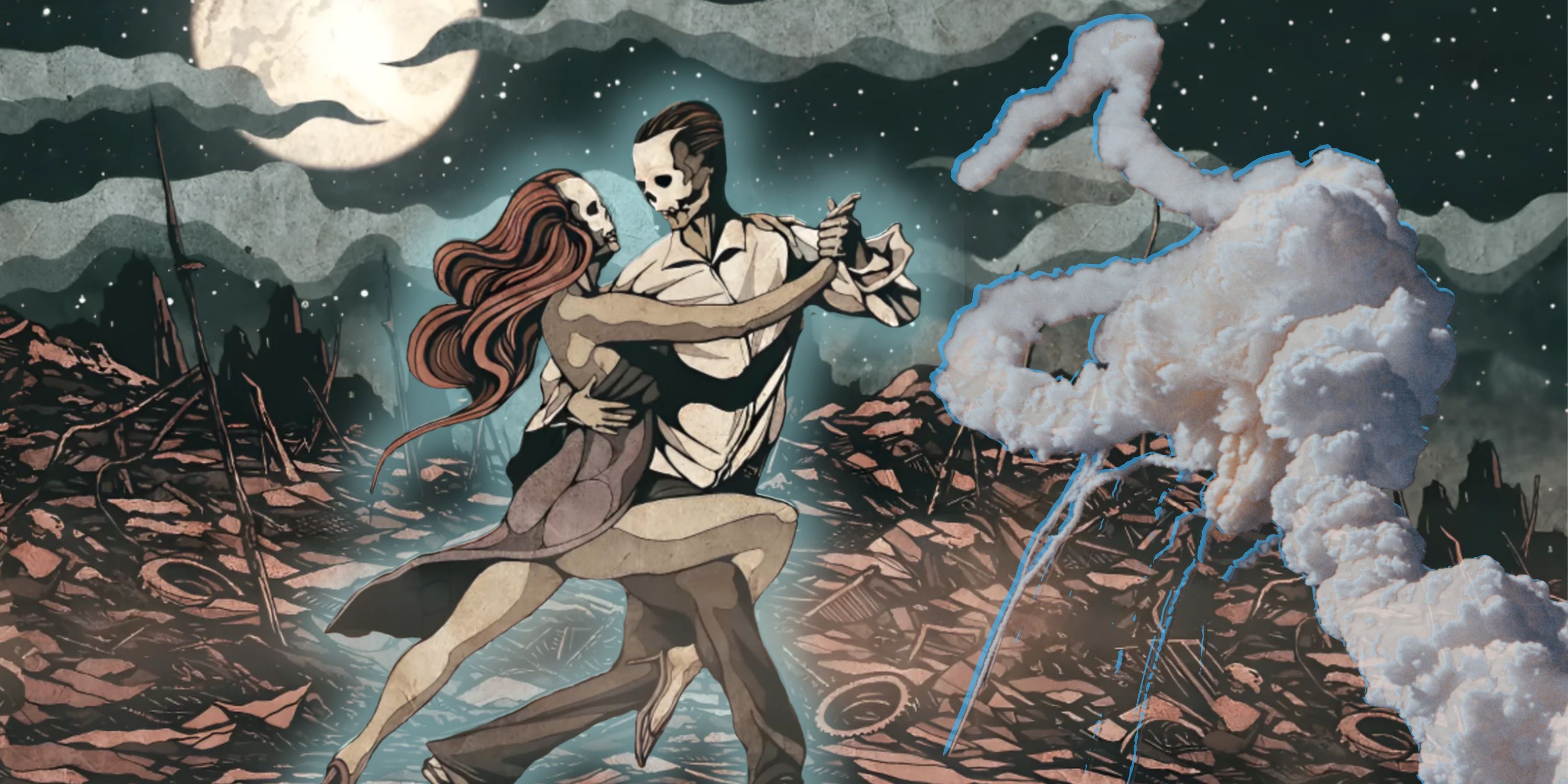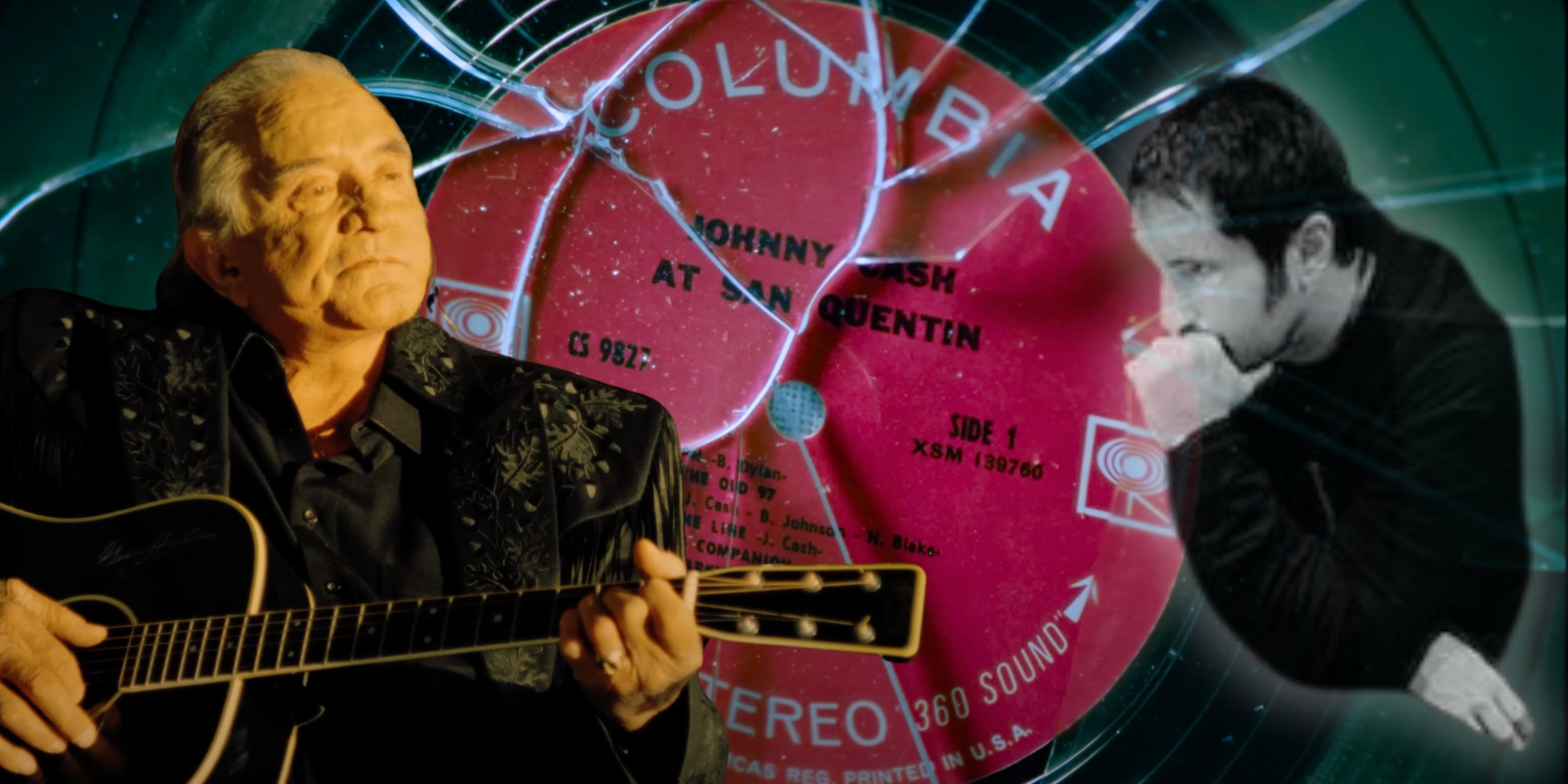[ad_1]
Cover songs are a long-standing tradition in popular music, and while sometimes covers might become more popular than the original, especially if the original song is significantly older, there’s usually a sense that the song still belongs to the original artist – especially someone like Johnny Cash. Yet every once in a blue moon, a cover song superior to the original comes out, or even rarer still, a cover becomes the definitive version of a song, outshining the original artist in every way.
That’s what happened in 2002, when country legend Johnny Cash released American IV: The Man Comes Around, the album that would prove to be his swan song in more ways than one. The entire American series, which helped revitalize Cash’s career in the early ’90s, was packed with covers of songs by artists from Depeche Mode to Soundgarden, but American IV took that genre-blind approach one step further. At the insistence of producer Rick Rubin, Johnny Cash covered “Hurt,” originally by Nine Inch Nails, and the results had even NIN frontman Trent Reznor admitting it was something special.
Trent Reznor Openly Admitted That Johnny Cash’s Version Of “Hurt” Is Definitive
The Nine Inch Nails Frontman Had A Powerful, And Complicated, Emotional Response To Cash’s “Hurt” Cover
In 2002, Rick Rubin reached out to Trent Reznor for permission to use “Hurt” on American IV, and Reznor gave his permission happily. Reznor was flattered that a legend like Cash, whose music had returned to the zeitgeist with a vengeance because of American Recordings‘ smash success, would be interested in a song he wrote, although he was also worried the result might wind up feeling like a gimmick. Once the recording was finished, Rubin sent a copy of the track for Reznor to hear, and this was his reaction:
A few weeks later, a CD shows up with the track … It sounded… weird to me. That song in particular was straight from my soul, and it felt very strange hearing the highly identifiable voice of Johnny Cash singing it. … [It] felt like I was watching my girlfriend f*** somebody else. (Alternative Press, September 2004)
But Reznor’s relationship with “Hurt” only continued to grow more surreal. Rubin, Cash, and director Mark Romanek also shot a music video for “Hurt” in early 2003, mostly at Cash’s old estate in Tennessee and the abandoned House of Cash museum nearby. If the demo of “Hurt” had left Reznor feeling some kind of way, the video had at least helped him resolve his feelings as he realized that Cash had made his song into something completely different.
[A] videotape shows up with Mark Romanek’s video on it. It’s morning … I pop the video in, and… wow. Tears welling, silence, goose-bumps… Wow. I just lost my girlfriend, because that song isn’t mine anymore. Then it all made sense to me. It really made me think about how powerful music is as a medium and art form. I wrote some words and music in my bedroom as a way of staying sane, about a bleak and desperate place I was in, totally isolated and alone. Some-f***ing-how that winds up reinterpreted by a music legend from a radically different era/genre and still retains sincerity and meaning – different, but every bit as pure. (Alternative Press)
Reznor isn’t the only musician to agree that Cash’s cover fundamentally redefined “Hurt.” While the song as a single was passed over at the 2003 Grammy Awards, American IV as a whole was critically lauded, and the music video for “Hurt,” with its poignant and unflinching shots contrasting Cash in his prime and his dotage, was awarded Best Music Video at both the Grammys and the Country Music Awards in 2004. Musicians from U2’s Bono to R.E.M’s Michael Stipe all had overwhelming praise for the result.
Johnny Cash’s “Hurt” Cover Would Never Have Happened Without Producer Rick Rubin
Cash’s Career Would Have Withered Away Without The Founder Of Def Jam Records
In the late ’80s, Johnny Cash fell from grace in the country music scene after being kicked to the curb by Columbia, the record label he had spent three decades with. It may well have been that Cash would’ve faded into obscurity in the ’90s, his legacy left to wither as the country music scene left one of its fiercest iconoclasts behind, but for the chance event of Rick Rubin, the founder of Def Jam Records, seeing Cash perform at Bob Dylan’s 1992 birthday party.

Related
How Pete Seeger, Joan Baez, & Johnny Cash Each Shape Bob Dylan’s Evolution In A Complete Unknown
In Bob Dylan biopic A Complete Unknown, James Mangold uses Dylan’s mentors Pete Seeger, Joan Baez and Johnny Cash to signpost his musical evolution.
That performance prompted Rubin to give Cash the kind of offer every musician dreams of from a record label: total artistic freedom on what songs to perform, and how they were recorded and arranged. The first American Recordings album, released in 1994, was a smash success as a result, and by the time the duo began work on American IV in 2001, they had the recording process down to an art.
|
Johnny Cash’s American Recordings Series |
|
|
Album |
Release |
|
American Recordings |
April 26, 1994 |
|
American II: Unchained |
November 5, 1996 |
|
American III: Solitary Man |
October 17, 2000 |
|
American IV: The Man Comes Around |
November 5, 2002 |
|
American V: A Hundred Highways |
July 4, 2006 (Posthumous release) |
|
American VI: Ain’t No Grave |
February 23, 2010 (Posthumous release) |
Yet even with years of collaboration under their belts, Cash and Rubin didn’t always agree on what songs to cover. In fact, “Hurt” almost fell by the wayside during the selection process; it took three or four tries for Rubin to get Cash to even listen to the original Nine Inch Nails version of the song. As Rubin described it himself:
I sent him a CD of like 20 songs, or 25 songs. I had “Hurt” on one of the ones tha I sent him, and he didn’t respond, and usually if he didn’t respond we didn’t go back to it, you know. And that one, I remember, I sent it again, and I put it first on the next CD. When he listened to the CD again and he didn’t respond, I said check out that first song, I really feel like that one could be good! (Loudwire)
Johnny Cash’s “Hurt” Only Changes One Word From The Original
And It Was Chosen Beautifully
The original Nine Inch Nails version of “Hurt” opens its second verse with the lyric “I wear this crown of s*** upon my liar’s chair.” This profoundly reflects Trent Reznor’s mentality when he originally wrote the song, as “Hurt,” like the rest of its source album The Downward Spiral, was deeply evocative of his personal struggles with self-esteem, depression, and addiction. In fact, “Hurt” was what Reznor called a “Valentine to the sufferer“ – it was an outlet for all of his self-loathing.
To record The Downward Spiral, Reznor bought the Tate House, the home in Los Angeles, California where the Manson Family murdered Sharon Tate in 1969.
While the Man in Black was no stranger to harsh language, he did change that line to say “crown of thorns,” a clear reference to the crown of thorns of Christian legend that pierced Christ’s brow before his crucifixion. Cash had taken deep solace in his Christian faith his whole life, and in making this change to the lyrics of “Hurt,” he shifted the song’s focus from the pain of a struggling young man to the weariness of the aged.

Related
10 Weirdly Uplifting Songs About Death
Sometimes a little memento mori can be a joyful thing, at least when it comes from musicians such as Warren Zevon or the immortal Johnny Cash.
“Hurt” encapsulated that weariness perfectly, and although it was Cash’s last hit, the aftermath of its release only underscored the song’s tragic nature. On May 15, 2003, just a few months after the filming of the music video, his wife and musical collaborator of 35 years, June Carter Cash, passed away. Cash, who had been in poor health for some time himself, spent the next several months following the last request she ever had for him: to keep making music.
Cash continued working as hard as he ever had, and wound up recording over 60 songs with Rubin’s help out of his home in Virginia over the following four months. Finally, on September 12, the legendary country star passed away at the age of 71. A year later, Reznor spoke about how his feelings toward “Hurt” had changed in the wake of Cash’s death, saying, “Things felt even stranger when he passed away. The song’s purpose shifted again.” (Alternative Press)
The country star had said in his final interview, shot on August 20, 2003 and embedded above, that he knew his life would be coming to an end soon. Maybe he’d had an inkling of how little time he had left when he selected “Hurt” for American IV and changed the lyric, and maybe he hadn’t. Either way, “Hurt” wound up becoming a swan song for Johnny Cash – and once it was, it stopped belonging to Trent Reznor altogether.
[ad_2]
Source link
